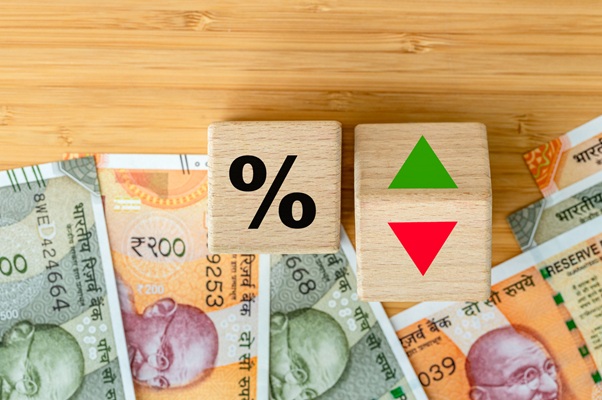.png)
March 6, 2025 at 2:08 AM IST
President Donald Trump has agreed to postpone tariffs on certain North American-built vehicles for one month following discussions with the CEOs of General Motors and Ford, as well as the chair of Stellantis, the White House announced on Wednesday. The automakers had pressed for a waiver on the 25% tariffs imposed on Mexico and Canada for vehicles meeting the rules of origin under the 2020 US-Mexico-Canada Agreement. White House press secretary Karoline Leavitt confirmed the temporary exemption, stating, “We are going to give a one-month exemption on any autos coming through USMCA… so they are not at a disadvantage.” The decision is expected to benefit US automakers and foreign manufacturers compliant with the agreement, though reciprocal tariffs are still set to take effect on April 2. Automakers have reportedly pledged to increase investments in the US but are seeking clarity on tariff and environmental policies to avoid disruptions.
Data
Growth in the US services sector unexpectedly accelerated in February, with the Institute for Supply Management’s nonmanufacturing PMI rising to 53.5 from 52.8 in January, defying forecasts of a dip to 52.6. The increase, coupled with rising input prices and a recent surge in raw material costs at factories, suggests inflation could heat up in the coming months. These price pressures may be exacerbated by President Trump’s new tariffs on imports. The services sector, which accounts for over two-thirds of the economy, remains a key driver of growth, but the combination of inflationary risks and escalating trade tensions poses significant challenges for policymakers and businesses alike.
Markets
Overnight
US stocks indexes closed higher on Wednesday in a volatile session, buoyed by hopes of easing trade tensions between the US and its major trading partners. Stocks turned positive after reports that President Donald Trump was considering a one-month delay on auto tariffs for Canada and Mexico, with gains extending after the White House confirmed the postponement. Carmakers Ford and General Motors surged 5.8% and 7.2%, respectively, and Tesla rose 2.6%, benefiting from the tariff delay. However, Intel fell 2.4% after Trump called for ending subsidies to the semiconductor industry, while cybersecurity firm CrowdStrike dropped 6.3% on a weaker-than-expected revenue forecast. The mixed performance reflected cautious optimism as markets weighed trade developments against corporate earnings and policy uncertainties.
US Treasury yields rose on Wednesday as investors parsed a mix of economic data and monitored developments around President Donald Trump’s tariffs. Yields initially fell after the ADP report revealed private payrolls grew by only 77,000 jobs in February, significantly below the 140,000 forecast and a sharp drop from January’s upwardly revised 186,000. The disappointing jobs figures, alongside other weak economic indicators, have fuelled concerns about slowing growth and reinforced expectations for Federal Reserve rate cuts this year. However, yields later rebounded, with the 10-year Treasury note climbing 5.9 basis points to 4.269%, its highest level since February 27.
The US dollar fell against most major currencies on Wednesday, with the euro reaching its highest level in four months. The dollar index dropped 1.19% to 104.31, while the euro surged 1.55% to $1.0789, marking its strongest week since November 2022. The euro’s rally was bolstered by news that German political parties agreed to a €500 billion infrastructure fund and a significant overhaul of borrowing limits, which economists described as a “really big bazooka” for the economy. The developments underscored growing optimism in Europe, further pressuring the dollar amid shifting global economic dynamics.
Brent crude oil prices closed lower on Wednesday after US crude oil stockpiles reported a larger-than-expected build, compounding existing market pressures. Brent crude futures fell $1.74, or 2.45% to $69.30 a barrel, reflecting concerns over rising supply and weakening demand amid broader economic uncertainties.
Day’s Ledger
Economy
- India February auto sales data by FADA
- EIA to release weekly natural gas storage report.
- US weekly unemployment claims report
- US January trade data
Companies
- Capacit'e Infraprojects board to discuss fundraising plans
- Hexaware Technologies Ltd to announce earnings.
Policy
- European Central Bank interest rate announcement.
- European Commission President Ursula von der Leyen and World Bank President Ajay Banga participate in the pact for European Social Dialogue signing ceremony
Tickers
- AUROBINDO PHARMA terminates vaccine license agreement with Hilleman Labs, initially signed in Sept. 2023.
- COFORGE board approves 5-for-1 stock split.
- DALMIA BHARAT's subsidiary, Dalmia Cement (Bharat) (DCBL), has entered into a Share Subscription and Shareholders’ Agreement to acquire a 34.52% shareholding in Kilavikulam Rajalakshmi Solar Power Developer, for ₹30 million in one or more tranches.
- KEC INTERNATIONAL gets ₹1.77 billion tax refund, including interest, from past assessments.
- L&T’s buildings unit wins ‘significant’ orders for residential projects in Mumbai, Bengaluru, Chennai.
- LIC HOUSING FINANCE approved a borrowing budget of up to ₹1.23 trillion for the financial year 2025-2026 through loans and/or the issue of redeemable non-convertible debentures.
- RPP INFRA PROJECTS has received a letter of acceptance for new projects worth ₹809.8 million from the Chennai Metropolitan Water Supply and Sewerage Board.
- TATA CONSULTANCY SERVICES has partnered with Vantage Towers, Europe’s second-largest telecom tower operator, to launch a digital service platform.
- ZAGGLE PREPAID OCEAN SERVICES has entered into an agreement with Tech Mahindra.
- ZYDUS LIFESCIENCES gets USFDA nod to manufacture Dasatinib tablets for leukemia treatment.
Must Read
- Donald Trump announces reciprocal tariffs from April 2, dashes India’s hopes for concessions
- Tesla rented 4,000-sq ft space in BKC Complex for maiden showroom in India
- RBI governor pushes for responsible innovation, compliance by new players in regulatory space
- CAG flags decline in states’ tax buoyancy
- RBI Announces Another FX Swap, More OMOs
- Nuclear power road map towards 100 GW goal likely by month end
- Aiming for 100% PC manufacturing in India in next 3 years: Lenovo
- Apple unveils new MacBook Air models with $100 price cut despite tariffs
- US eyes zero tariff on cars in India trade deal as Tesla entry nears, sources say
- Trump blocks intelligence sharing with Ukraine after freezing military aid
- Trump to Delay Canada, Mexico Tariffs on Autos for One Month
Daily Mantra
Great works are performed not by strength but by perseverance.
Musings

India's economic heartbeat is a family affair, with a whopping 80% of the GDP donning the family business cape. This makes us vulnerable to succession plans. With the next generation often jet-setting for education abroad and settling there, or awkwardly stumbling into the family business, the tune of continuity becomes a delicate dance.
It is like our GDP is caught in a family drama, where the financial future hangs in the balance, waiting for the next generation to pick up the baton without missing a beat.
In my meetings with business tycoons, we often discuss:
- Lack of willingness by successor
- Inability to adopt the India way of doing business
- Lack of experience on the factory floor
- Family feuds
- Blending and setting the culture of the organisation
- Problems of transitioning from a family setup to a professional setup
Here’s wishing all the luck to my wealthy friends. - Chetan Chandak
Chetan is a published author and a dabbler in mysticism. By day, he trades currency derivatives at an Indian private bank; after hours, he delves into ideas beyond the numbers. His musings—part reflection, part curiosity—are his own and don’t represent views of his bank




